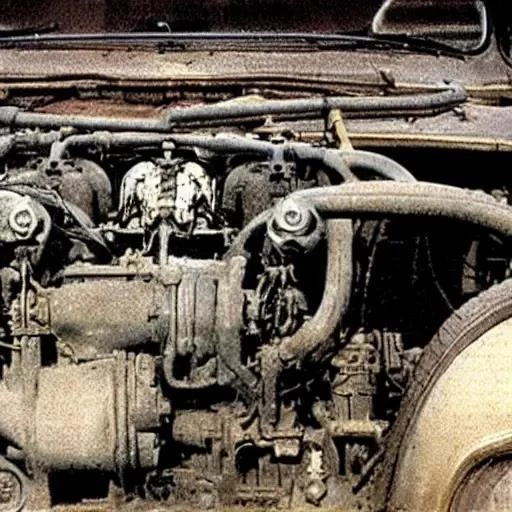The subtle hum of a well-tuned engine is a symphony of engineering prowess, a reassuring whisper that all is well beneath the hood. It’s the soundtrack to countless journeys, a testament to precision and reliability. But what happens when that whisper escalates into a groan, a grinding, or a full-blown roar? Suddenly, the daily commute transforms into an anxiety-inducing concert, leaving drivers everywhere wondering: why is my car engine sounding louder, and what does it truly signify?
Ignoring these auditory warnings is akin to dismissing a smoke alarm — a potentially costly oversight with dire consequences. A louder engine isn’t merely an annoyance; it’s a critical distress signal, a mechanical plea for attention that, if unheeded, can lead to exacerbated damage, spiraling repair bills, and even dangerous roadside breakdowns. Fortunately, understanding these crucial messages is the first powerful step towards safeguarding your vehicle’s longevity and, most importantly, your peace of mind.
Understanding the intricate anatomy of these noises is crucial for any conscientious driver. Often, a louder car engine can be attributed to issues ranging from the relatively minor to the gravely serious. Exhaust system leaks, for instance, are a surprisingly common culprit, transforming a quiet ride into a boisterous rumble as gases escape prematurely. “Think of your exhaust system as a finely tuned instrument,” explains Dr. Evelyn Reed, a renowned automotive engineer specializing in acoustics. “Any perforation or dislodged component can disrupt that harmony, creating a cacophony that signals inefficiency and potential environmental non-compliance.” Beyond exhaust woes, aging or frayed serpentine belts can produce piercing squeals, while insufficient lubrication might manifest as rhythmic tapping, each distinct sound a direct indication of a vital part struggling under increasing stress;
Fortunately, the automotive industry is innovating relentlessly to empower drivers and technicians alike. The advent of sophisticated diagnostic tools, often integrating AI-driven insights, has revolutionized how we approach engine health. These advanced systems can pinpoint the exact origin of an anomaly, distinguishing between a harmless vibration and a critical failure with incredible precision. Preventive maintenance, once a reactive chore, is now evolving into a proactive science. Regular oil changes, timely belt replacements, and attentive fluid checks are no longer mere suggestions but vital components of a holistic strategy for engine longevity. By embracing a forward-thinking approach, enabled by cutting-edge technology, drivers are increasingly able to preempt major issues, ensuring their vehicles remain reliable and, crucially, remarkably quiet.
Looking ahead, the future of vehicle care promises even greater levels of predictability and efficiency. Imagine cars that not only diagnose their own ailments but also schedule their maintenance appointments, learning from vast datasets of vehicular performance to anticipate potential issues before they even manifest audibly. This isn’t science fiction; it’s the tangible horizon of automotive engineering, a landscape where the once unsettling sound of a louder car engine becomes a relic of the past. Empowered by technology and a deeper understanding of our vehicles, we are driving towards an era where our cars don’t just take us places, but do so with an unparalleled sense of security, serenity, and silence. The road ahead is not just smoother, but profoundly quieter.






